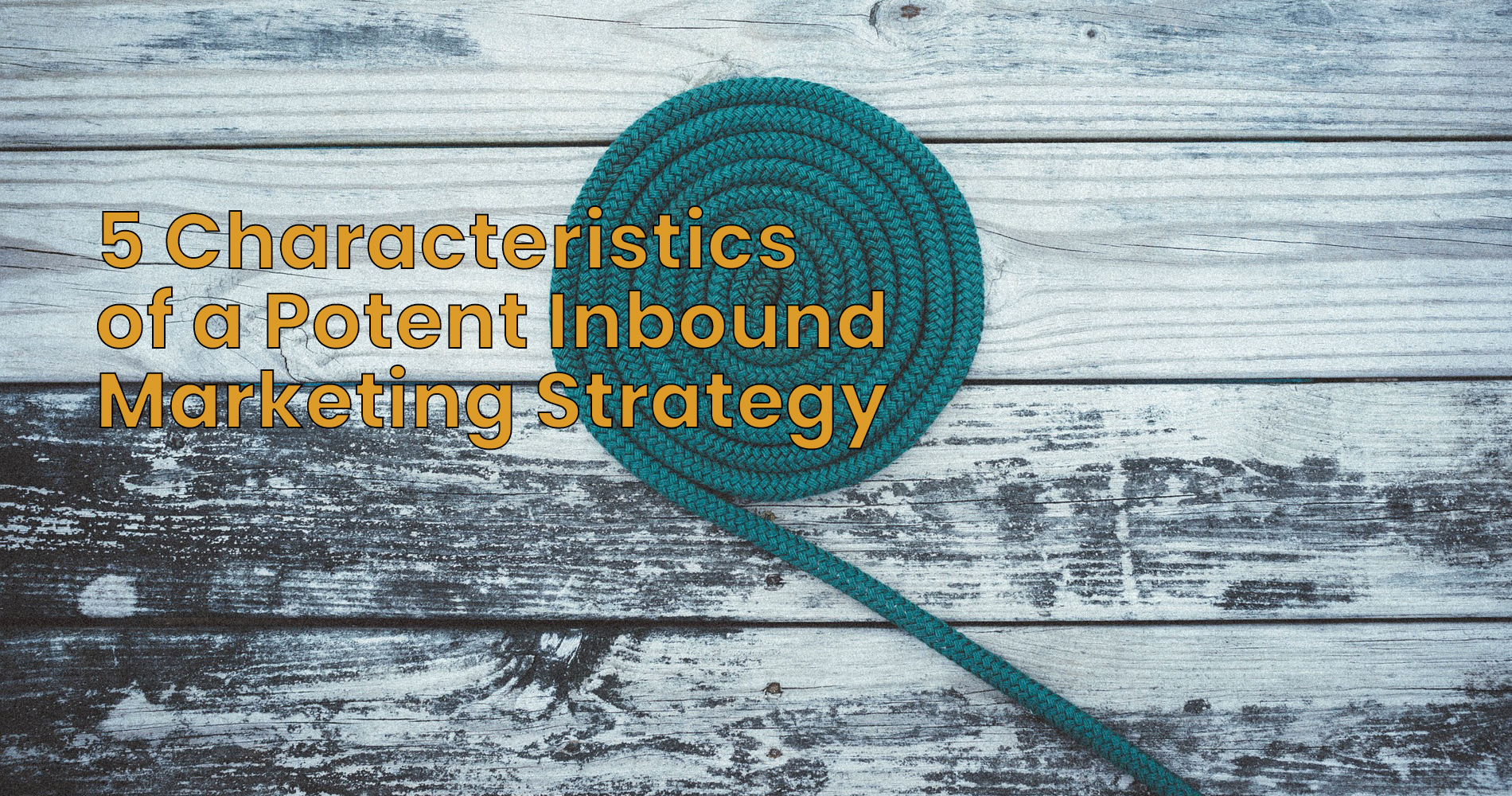If you’re a HubSpot partner of any size, and you’re on the fence about selling strategy, let me be the first to say: go for it. Nearly a year ago, we at Real Inbound made the decision to “niche” and focus on selling strategy as a service, and it transformed our business in ways we didn’t expect.
After five years as a HubSpot Partner, we’d built up to Platinum level, earned some consistent project work, and established a reliable reputation. But there were some fundamental issues that we couldn’t seem to solve:
- We struggled with lack of recurring revenue, as most of our work was project-based.
- We lacked differentiation from other partners and struggled to stand out.
- Our work was largely reliant on referrals and recommendations.
- Cash flow was inconsistent.
- Selling time-based projects led to crazy hours and an unpredictable workload.
It was a feast-or-famine cycle. We decided to take a leap and go for a different approach—and this decision led us to a place we hadn’t anticipated. In this article, I’ll walk through our journey of niching, discovering the HubSpot Adoption Gap, and creating a differentiated offering that’s brought us the recurring revenue, stability, and fulfilment we were missing.
The Real Inbound Story: From Projects to Strategy (and Everything HubSpot Still Needs)
In the beginning, we explored “niching” vertically, working with specific types of businesses, but we didn’t see the impact we were hoping for. Then we turned to horizontal niching—solving a very specific problem that was universal across industries rather than serving only one sector.
That’s when we came across what we now call the HubSpot Adoption Gap and coined the phrase #HubSpotIsNotaStrategy. This pivot was key, because it transformed our approach from just executing HubSpot tasks to helping clients develop and implement an actual strategy within HubSpot.
Now, while we still offer all the essentials—implementations, integrations, training, and web development—we focus on delivering these services within a strategic framework. This has allowed us to build a unique offering that ensures our clients get lasting value from HubSpot, not just a one-off setup. Here’s why this shift has been game-changing for us and how it could be for you, too.
What Is the HubSpot Adoption Gap?
The HubSpot Adoption Gap is what happens when clients buy HubSpot expecting immediate, tangible results—without the strategy to back it up. HubSpot is a powerful tool, but at its core, it’s only as effective as the strategy driving it. When a client lacks a cohesive plan, HubSpot ends up being underutilised, misaligned with business goals, or simply abandoned.
At Real Inbound, we realised that to help clients bridge this gap, we had to focus on teaching clients to build their strategy into HubSpot. It wasn’t enough to simply set up workflows or help them with specific campaigns. To get long-term results, we needed to address the deeper issues, like aligning their business goals with HubSpot, establishing processes, and making sure they understood the “why” behind every tool.
Why Selling Strategy Changes the Game for HubSpot Partners
For us, focusing on strategy has led to more meaningful client relationships, recurring revenue, and a niche that sets us apart from other HubSpot partners. Here’s why selling strategy can change the game for any HubSpot partner:
- Increases Recurring Revenue: Projects come and go, but strategy work is ongoing. It creates a steady stream of recurring revenue that gives your business financial stability.
- Establishes Differentiation: When you’re selling strategy, you’re offering something beyond the tool itself. You’re selling expertise, insight, and a customised approach that goes beyond typical project work.
- Creates Sustainable Cash Flow: Recurring revenue and client retention create consistency. Cash flow becomes predictable, which reduces the need to constantly seek new clients to meet targets.
- Strengthens Client Retention and Relationships: When you’re working with clients on a strategic level, they’re more likely to stay with you long-term. They see you as a trusted advisor rather than just a vendor.
- Transforms Your Work Culture: Selling time-based services means crazy hours, but with a strategic model, you can focus on meaningful work that drives results without burning out your team.
How to Transition to Selling Strategy
Transitioning to selling strategy requires a few core changes in how you approach your client work. Here’s how we made the shift at Real Inbound, along with some insights for making this shift successfully.
- Define Your Niche by Solving a Specific Problem
When we started exploring how to niche our services, we realised that vertical niching (targeting a specific industry) wasn’t as impactful as we’d hoped. Instead, we found our niche in solving a very specific problem across industries: the HubSpot Adoption Gap.
Tips for Finding Your Niche:
- Identify a Common Problem: What are the common challenges your clients face when adopting HubSpot? This could be anything from change management to poor data hygiene or marketing automation.
- Create a Name for It: Naming your niche gives it power and clarity. For us, “HubSpot Adoption Gap” is a straightforward way to define the issue we solve.
- Focus on a Unique Selling Proposition (USP): Craft your service offering around this problem and make it clear how you solve it better than anyone else.
Finding your niche isn’t just about making things easier for your team—it makes it easier for clients to understand your value. They’ll see you as a specialist who can solve their unique problem rather than just another vendor.
- Emphasise Change Management in HubSpot Adoption
One of the biggest lessons we’ve learned is that adopting HubSpot successfully is less about the technology and more about change management. Businesses need help making the internal changes required to get the most out of HubSpot. This includes adapting processes, aligning teams, and building a strategy that the whole organisation understands and follows.
Key Change Management Principles:
- Create a Culture for Change: For HubSpot adoption to succeed, your clients’ teams need to be ready for change. Encourage them to involve everyone in the transition and provide regular updates on the benefits and goals.
- Offer Consistent Training: Ongoing training is essential to ensure everyone understands how to use HubSpot and why it matters.
- Establish Clear Communication Channels: Regular communication between marketing, sales, and service teams ensures that HubSpot’s capabilities are fully leveraged.
By focusing on change management as a key element of HubSpot adoption, you’ll be setting clients up for long-term success rather than just a quick project fix.
- Guide Clients, Don’t Just Give Them the Answers
One of the biggest differences in selling strategy is that you’re guiding clients toward solutions rather than handing them pre-made answers. This approach gives clients a sense of ownership and confidence in their ability to use HubSpot effectively.
Why Guiding Works Better:
- Builds Long-Term Skills: When clients are involved in finding solutions, they build the skills they need to be self-sufficient with HubSpot.
- Fosters Ownership: When clients feel like they’ve played a role in developing their strategy, they’re more likely to stick with it and see HubSpot as a valuable asset.
- Strengthens Your Role as a Trusted Advisor: Guiding clients rather than giving them quick answers builds trust and positions you as a true partner.
Encourage clients to take the reins, ask questions, and actively participate in the strategic process. It will create a stronger foundation for their success—and yours.
- Offer an Educational Email Series
One effective way we’ve found to engage clients in strategy is through an educational email series. At Real Inbound, we offer our HubSpot Adoption Gap Framework email series, which breaks down the steps and strategies needed to adopt HubSpot successfully. This helps our clients understand the full scope of what HubSpot can do and keeps them engaged.
Benefits of an Educational Email Series:
- Increases Engagement: Clients stay engaged with HubSpot adoption topics and regularly receive valuable insights.
- Builds Authority: You position yourself as an expert, and clients will start seeing you as a go-to source for HubSpot success.
- Drives Consistency: An email series reinforces the idea that HubSpot adoption is a continuous journey, not a one-time project.
If you don’t already offer something like this, consider creating a series that answers common client questions and provides insights on HubSpot strategy. It’s a low-cost, high-impact way to add value.
The Opportunity to Sell Strategy as a HubSpot Partner
Selling strategy doesn’t mean you have to stop doing project work. For us, it was a shift in focus, not a complete overhaul. Strategy creates a foundation that allows us to offer more consistent value, which in turn builds client loyalty and drives growth.
This shift to strategy has opened the door for us to work with clients on a deeper level. We’re no longer focused on one-off projects but on becoming long-term partners who help them achieve sustainable success with HubSpot.
If you’re thinking about selling strategy as a HubSpot partner, go for it. There are countless ways to tailor this approach to your own strengths, whether that’s change management, RevOps, ABM, customer success, or marketing strategy. The key is to make the shift from just delivering tasks to guiding clients in building their success.
Conclusion: Why Selling Strategy Was Our Best Move Yet
At Real Inbound, focusing on strategy has been transformative. It’s helped us achieve stable, recurring revenue, created stronger client relationships, and given us a niche we’re proud to call our own. If you’re a HubSpot partner considering the shift to strategy, I can confidently say: do it.
While we still provide all the essential HubSpot services—implementations, integrations, training, and web development—our focus around strategy has allowed us to bring sustainable, measurable results to our clients.
If you’re interested in learning how we developed our strategy-focused model or want to dig deeper into HubSpot adoption techniques, feel free to ask about our Educational Email Series. This series is designed to help HubSpot partners, consultants, and clients understand the steps necessary for full adoption and long-term success.
Ready to Close the HubSpot Adoption Gap?
Our HubSpot Adoption Gap Framework is an educational email series crafted to guide you on the path to successful HubSpot adoption. Sign up today and discover practical insights for driving long-term success with HubSpot.
💡 Sign up today to receive actionable strategies directly to your inbox.
👉 [Sign Up Below] for the HubSpot Adoption Gap Framework email series and start transforming your business with HubSpot!








